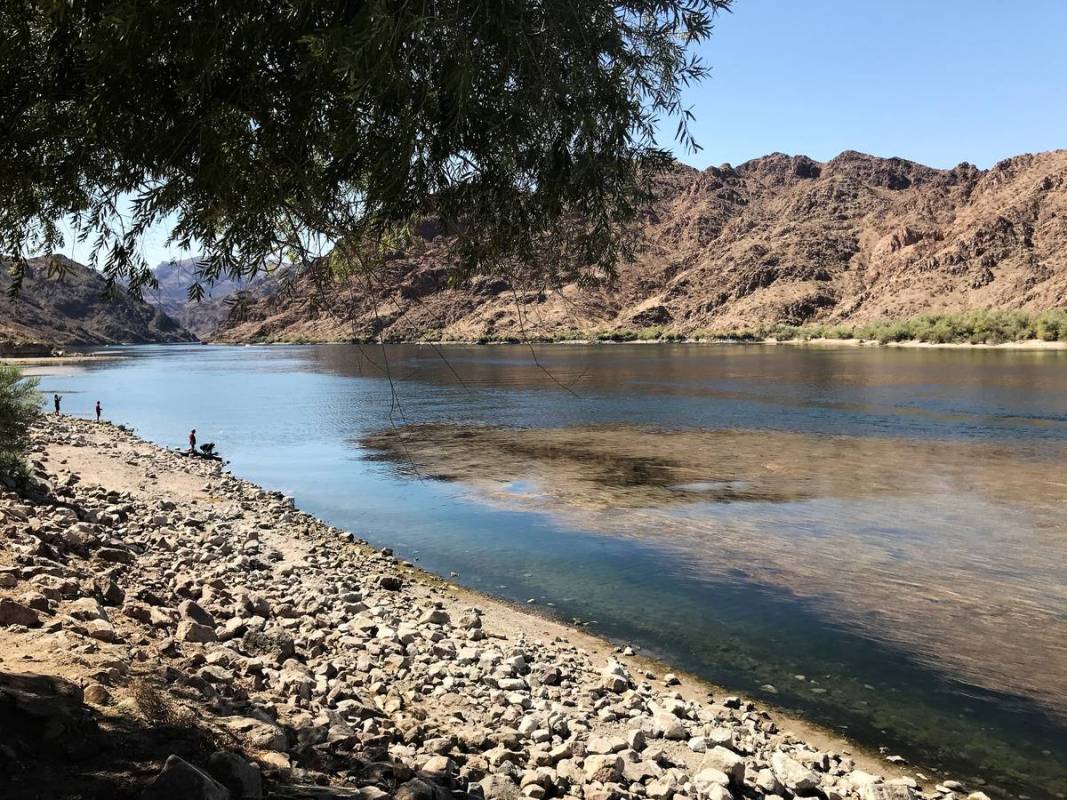Bass fishing tourney returns to Lake Mead after being postponed

About six months after being postponed due to COVID-19 related restrictions, the curtain has finally gone up on the TNT Fireworks B.A.S.S. Nation Western Regional bass tournament at Lake Mead. Anglers from nine Western states are competing not only for prize money but for a spot in the B.A.S.S. Nation Championship slated for Alabama’s Pickwick Lake in November.
The three-day event kicked off early Wednesday morning and will wrap up with the final weigh-in at 2:15 p.m. Friday at Callville Bay Marina. It is one of five regional championship events B.A.S.S. Nation originally scheduled across the country.
B.A.S.S. stands for Bass Anglers Sportsman Society, founded in 1967 by Ray Scott with the intention of putting bass fishing on the map. According to the organization’s historical timeline published at Bassmaster.com, “In the first issue of Bassmaster, Scott wrote: ‘It is my plan that we lift bass fishing up to public par with golf, bowling and pocket billiards. It’s high time the public found out we exist.’”
In 1971, Scott brought tournament fishing to Lake Mead with the inaugural Bassmaster Classic. As the story goes, Scott invited 24 hand-picked anglers to the tournament but did not tell them where they were going until the plane in which they were flying reached cruising altitude. Bobby Murray won that event and took home $10,000 for his efforts.
Given that bass fishing has grown into a worldwide multibillion-dollar industry, it is safe to say that Scott accomplished what he set out to do.
As with other competitive sports, tournament anglers must earn their way into the ranks of the elite, and that is where B.A.S.S. Nation enters the picture. Basically, it is a network of locally organized clubs whose members can compete, and if good enough, win their way into a spot at the Bassmaster Classic alongside the world’s most accomplished bass anglers. Members also participate in conservation initiatives and youth programs.
“B.A.S.S. Nation can be the gateway to a career in professional fishing,” said Jon Stewart, the organization’s director, while announcing additions to its tournament schedule in November 2019. “Once you reach the Nation Championship, you’re fishing for a chance to fish in the Bassmaster Classic. We’re excited this year to offer even more chances for anglers to do that.”
Information about the Nevada chapter of B.A.S.S Nation can be found online at www.nevadabassnation.org/ .
For those interested in learning from anglers who have made it to the professional level, or just being there for the daily weigh-ins, the Western Outdoor News U.S. Open bass tournament will take place October 12-14 at Callville Bay. Participants will be competing for cash and a brand-new 2020 Bass Cat PUMA FTD fishing boat package that includes a 250-horse Mercury four-stroke motor.
Lake Mohave drawdown
Boaters and other recreationists who frequent Lake Mohave are bound to notice that the water level has dropped significantly since September 1. Shorelines that have been covered with water are now exposed to the sun, creating a white layer sandwiched between the green of shoreline vegetation and the blue-green hue of the lake’s surface.
Brush that was once submerged now rests above the waterline,which means anglers may have to change their approach as the fish they pursue adjust to changes in their environment.
While such changes can be disconcerting, there is still plenty of water available for outdoor types to enjoy, though boaters will want to keep an eye out for newly exposed rocks and other obstacles that might damage a vessel’s hull or propeller. This is especially true in places where they have spent enough time to become comfortable. What they knew before is now different, at least for the time being.
The good news is the drop in water level and the resulting changes to Mohave are temporary. They are the result of an annual drawdown the Bureau of Reclamation (BOR) times to correspond with conservation activities for the endangered razorback sucker.
Plans call for Mohave to drop approximately 10 feet from an elevation 643.8 feet in late August to 634 feet by the week of October 4, where it will remain for about a week. Thereafter the BOR will begin to bring the water level back up. By the end of October, the agency expects the water level to reach about 636 feet.
Freelance writer Doug Nielsen is a conservation educator for the Nevada Department of Wildlife. His “In the Outdoors” column is not affiliated with or endorsed by the NDOW. Any opinions he states in his column are his own. Find him on Facebook at @dougwritesoutdoors. He can be reached at intheoutdoorslv@gmail.com